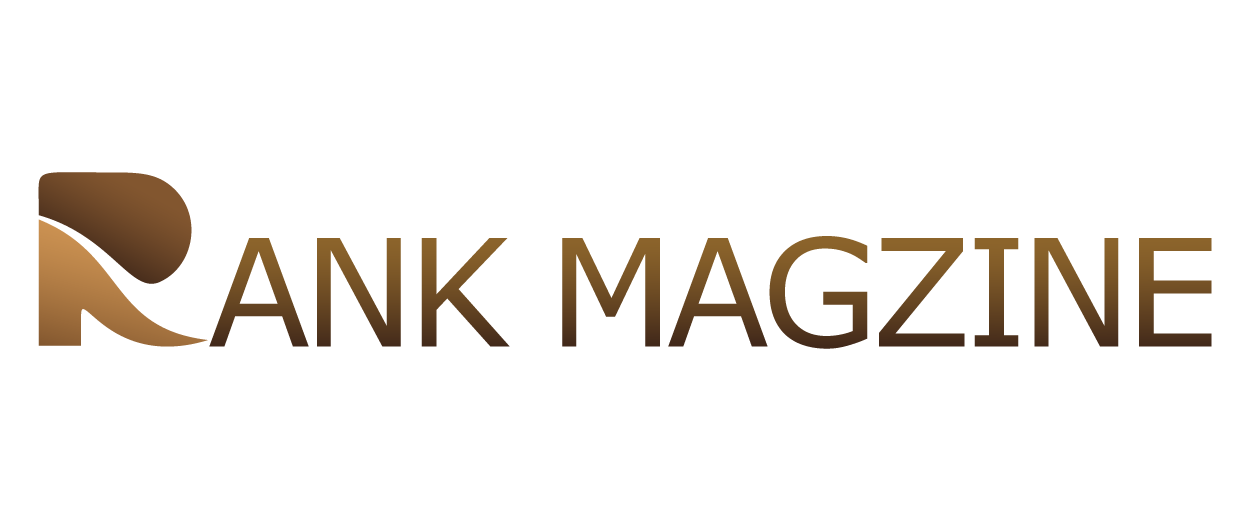Key Takeaways
- Technological integration is enhancing the efficiency and effectiveness of caregiving, allowing professionals to provide more attentive and responsive care.
- Specialized training and certifications are becoming essential for career advancement and ensuring high-quality, individualized care for clients with unique needs.
- Collaborative care models are enhancing patient outcomes, fostering effective communication among care teams, and increasing job satisfaction among caregivers.
- Emphasis on caregiver well-being is leading to improved support systems, lower turnover rates, and reduced burnout, making caregiving a more sustainable profession.
Caregiving continues to transform as technology, shifting demographics, and healthcare evolution redefine what it means to care for others. These changes go far beyond the surface—they are fundamentally altering every aspect of caregiving, from the tools and techniques caregivers use to how they connect with those in need. Today’s caregivers, whether working in private homes, community settings, or long-term care facilities, are experiencing changes that impact their daily duties, the complexity of their required skillsets, and the diversity of their career pathways. For anyone interested in exploring a meaningful profession, understanding the new dynamics in the field is essential. The profession is also attracting attention from those outside traditional healthcare because of its stability and potential for personal fulfillment. Those seeking opportunities can learn more about https://beaconspecialized.org/caregiver-jobs-forest-lake-mn/, and beyond to discover where their compassion and abilities can truly make a difference—whether they’re new to the workforce or looking for a purposeful career change.
Technology is now vital in caregiving, helping professionals work efficiently and focus on personal connections instead of paperwork. Caregivers are becoming more skilled and multifaceted, needing to master technology that improves care and communication. Specialization ensures caregivers can support elders and those with complex conditions, with new tools and certifications adding value. Beyond tech skills, caregiver well-being and job satisfaction are gaining attention, leading to better work environments and higher care standards. This holistic approach promotes career growth and elevated care quality.
Technological Integration in Caregiving
Healthcare innovation has propelled caregiving into a new era. Wearable health monitors, telehealth platforms, and smart home devices enable preventive care and streamline daily routines, ultimately enhancing overall well-being. These tools would allow caregivers to track vital signs, set reminders for medication, and remotely monitor mobility or wellness metrics, which is especially beneficial for clients who wish to age in place. Telehealth connects patients and providers without the need for travel, keeping older adults and those with health challenges safer while ensuring timely guidance and intervention. Smart devices can alert caregivers or family members to sudden changes in a patient’s health status, such as blood pressure spikes, falls, or medication issues, enabling rapid interventions and more personalized care. Studies from sources like AARP show that families and patients are increasingly reliant on these tools—not just for convenience, but for peace of mind—expecting tech-savvy professionals who can seamlessly integrate digital resources into compassionate care. Learning to use this technology is quickly becoming a necessary skill, as it not only enhances safety but also allows caregivers to use their time more efficiently and focus on meaningful human interaction.
Specialized Training and Certifications

As the needs of care recipients grow more complex, caregivers must keep pace with specialized education. Certifications in Alzheimer’s and dementia care, palliative care, and chronic disease management are becoming the norm rather than the exception. These qualifications often involve learning best practices for supporting individuals with memory loss, mobility challenges, or end-of-life needs. They are increasingly required by employers who want to provide the highest standards of care. Earning these credentials not only boosts employability but also signals dedication and competence to families seeking the best support for their loved ones.
Additionally, specialized training often includes up-to-date instruction on a range of topics, from infection control to communication strategies for individuals with cognitive impairments. Organizations and employers frequently support caregivers in pursuing advanced skills, offering scholarships, flexible work arrangements, or access to accredited programs. This investment pays dividends as well-trained caregivers inspire trust and enhance outcomes for their clients. As care needs become increasingly nuanced, the most successful caregivers are those who continually expand their knowledge and actively seek new learning opportunities.
Collaborative Care Models
Modern caregiving does not happen in isolation. Increasingly, care professionals are part of collaborative teams that consist of doctors, nurses, therapists, social workers, and sometimes even dietitians or activity coordinators. This integrated approach streamlines communication through shared digital records while reducing errors and ensuring that all aspects of an individual’s physical, emotional, and social needs are addressed. Data from the AARP highlights the improved outcomes and greater job satisfaction seen with such team-based models. Team meetings, shared planning sessions, and interdisciplinary care plans help ensure that each client receives comprehensive and coordinated support, thereby reducing gaps in care and improving both short-term and long-term outcomes. Collaboration also provides needed peer support, mentorship, and shared resources, making caregiving more sustainable over time. When challenges arise, having a strong, cohesive team can be the difference between positive and difficult outcomes both for clients and for caregivers themselves.
Emphasis on Caregiver Well-Being
Recognizing the stress and dedication required in caregiving, providers are prioritizing employee wellness like never before. Caring for others can be emotionally demanding and physically exhausting; acknowledging the needs of caregivers themselves is critical to sustaining quality care. Access to counseling, mental health support, and peer groups is emerging as a best practice within progressive organizations. Support systems such as employee assistance programs offer confidential help with stress management, while professional development workshops and social activities provide important outlets for connection and self-care. Flexible scheduling, paid time off, and wellness programs enable caregivers to balance their own needs with those of others. According to the Mayo Clinic, supporting caregiver well-being is a critical factor in reducing burnout, maintaining morale, and retaining skilled staff—all of which are essential for delivering quality care. By focusing on the health and happiness of caregivers, employers can create workplaces that inspire loyalty and dedication. At the same time, clients benefit from care provided by professionals who are motivated, rested, and emotionally resilient.
Job Stability and Growth in Caregiving Careers
The future for caregiving careers is exceptionally promising. The aging population and the preference for home-based care are driving steady demand for professional caregivers, making this field one of the most resilient within the broader healthcare industry. The U.S. Bureau of Labor Statistics anticipates a 22% growth in home health and personal care jobs from 2022 to 2032, resulting in the addition of over 800,000 new positions nationwide. This surge in demand offers remarkable job stability, enabling individuals to make long-term plans and explore career paths that align with their interests. Whether a person seeks work in direct care, client advocacy, care coordination, or leadership roles, there is room for progression and specialization. Many employers also provide career ladders and training incentives to help caregivers advance into supervisory, mentor, or administrative positions. This progression not only benefits individuals but also improves the effectiveness and professionalism of care across the industry.
Leveraging Technology for Better Care

Mobile apps, automated medication dispensers, and digital communication platforms are now staples of modern caregiving. These technologies help reduce medication errors, simplify scheduling, and enable real-time updates between caregivers and families—keeping everyone informed and empowering family members to participate more fully in a loved one’s care. In emergencies, smart devices can instantly notify the care team or relatives, helping prevent complications and ensuring timely interventions. As more software and devices become user-friendly, digital literacy is a must-have skill. Caregivers who embrace these changes not only help their clients enjoy improved quality of life but also gain a competitive edge as employers seek adaptable, tech-savvy professionals. Adaptability and a willingness to learn are quickly joining empathy and patience as the most in-demand qualities by leading care organizations.
Career Advancement Opportunities Within Caregiving
The interpersonal and organizational skills developed through caregiving—such as empathy, problem-solving, communication, and time management—open doors to various advancement opportunities. Many caregivers pursue additional certifications to move into specialized roles or management positions within senior care, home health agencies, or hospital systems. Others use their direct experience as a springboard to related health or human services careers, such as nursing, social work, or rehabilitation therapy. Education pathways, tuition assistance, and mentorship programs are available through many employers or community organizations, helping caregivers reach their next goals. Support from supervisors and peers, coupled with employer investment in professional development, empowers caregivers to pursue their ambitions within and beyond the field. The experience gained in caregiving provides a solid foundation for success in many different sectors.
Conclusion
The caregiving field is experiencing a rapid and positive transformation that is shaping how millions of people give and receive essential support. Embracing advancements in technology, prioritizing education and collaboration, and supporting caregiver health are imperative steps for a sustainable and rewarding career. With strong job prospects and the opportunity to make a real difference in people’s lives, caregiving stands out as a future-focused profession for those drawn to help others and embrace growth. As society continues to recognize the importance of caregivers, the field is likely to enjoy even more innovation, prestige, and opportunities in the years to come.








